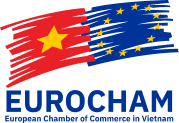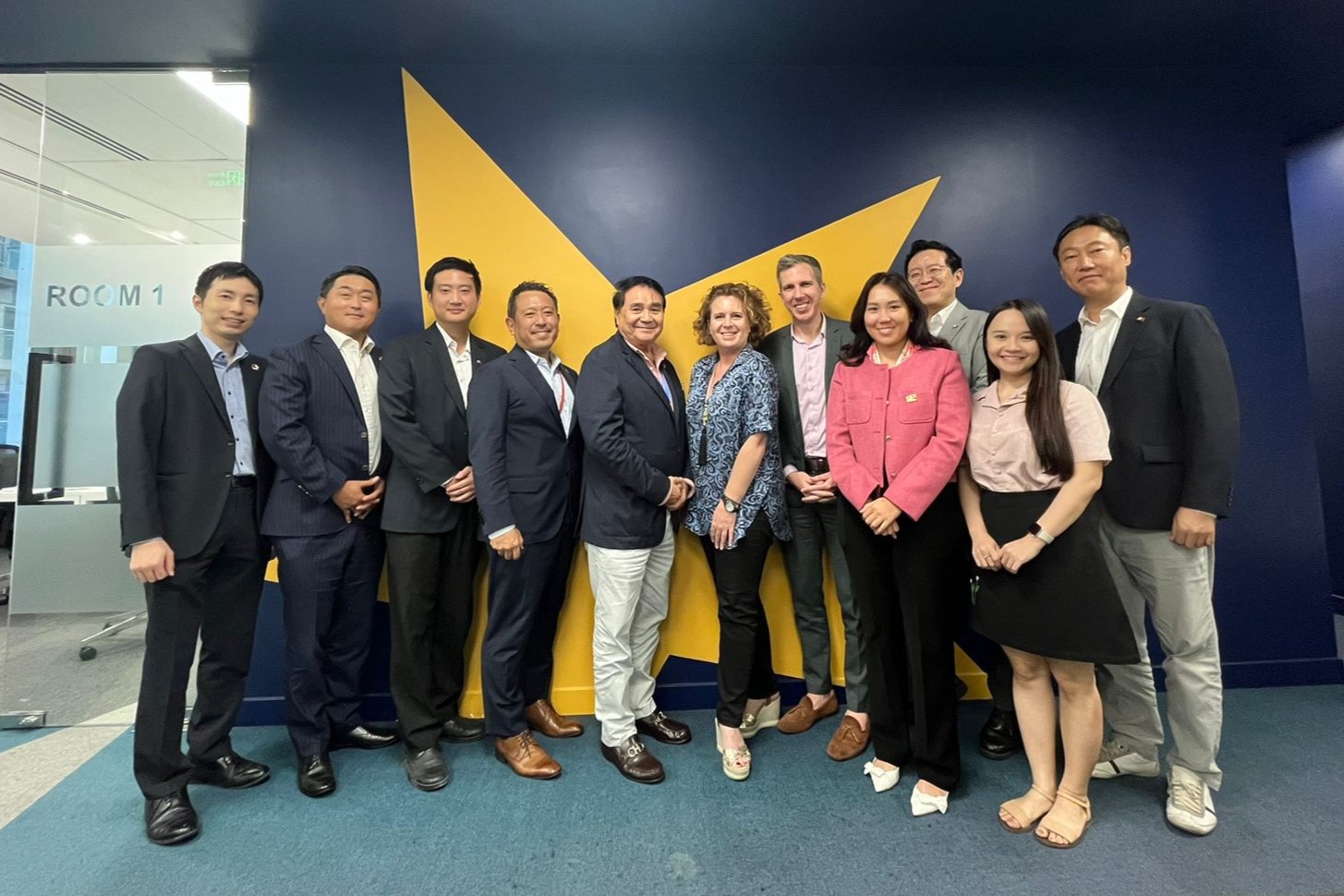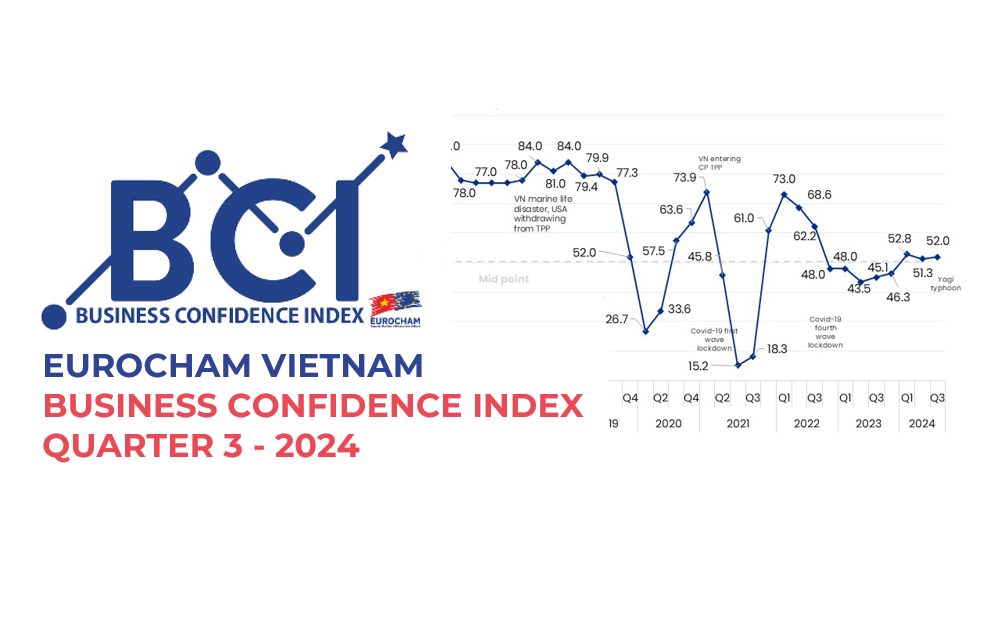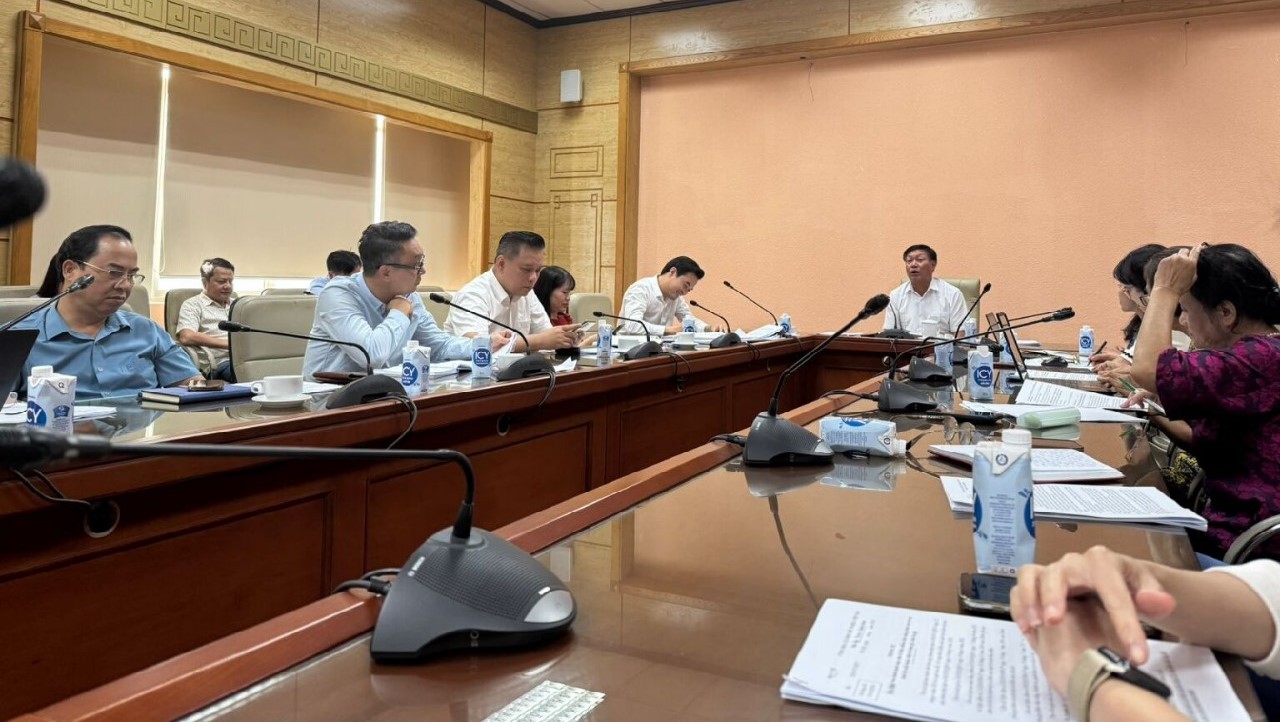On Monday 19 April, EuroCham Board Member Thue Quist Thomasen represented EuroCham at the 2021 Vietnam National Branding Forum in Ho Chi Minh City. The event, themed “Vietnam’s National Brand: New Position, New Value” was organized by Vietnam’s Trade Promotion Agency and the Ministry of Industry and Trade.
The Vietnam National Branding Forum is the government’s trade promotion program. It aims to build and develop national brands and to promote the image of Vietnam as a country with high-quality goods and services. In doing so, it seeks to enhance the competitiveness of Vietnamese enterprises in domestic and international markets. The Forum featured speakers from government, private enterprise, and international business communities.
EuroCham was invited to speak as part of a roundtable discussion on national branding, with a focus on how local business can build their own reputations and take advantage of the national brand in their business strategies. Speaking for EuroCham, Mr Thomasen said that the chamber applauded the initiative of the government and supported its aims of building and developing national brands and supporting domestic business. EuroCham shares this ambition: to build the reputation of Vietnam’s goods and services on the international stage and Vietnam can count on Europe as a partner.
Mr Thomasen then discussed the EU-Vietnam Free Trade Agreement (EVFTA). This agreement – which entered into force on 1 August 2020 – will be one of the critical tools to promote Vietnam and its companies, products, and services. It represents a unique chance for Vietnamese companies to build international brands and to build trust with consumers. And, in phasing out tariffs and opening-up sectors, it offers companies in Vietnam huge opportunities to access the EU market and – in turn – to become trusted international brands.
However, in order to achieve this and unlock the full potential of this agreement, the first step will be for companies to meet the EU’s high quality standards, which have been developed over decades. For instance, the European Union has high standards on safe and sustainable food products sold in the continent. Therefore, companies in Vietnam wishing to build their brand in the EU market need to meet the bloc’s standards on, for instance, Sanitary and Phytosanitary (SPS) measures. The same is true in other areas such as intellectual property rights, rules of origin, and labour standards. This will open up access to the world’s biggest market and give Vietnamese products privileged access not available to other countries in the region.
In this sense, the EVFTA is about more than tariff reductions. It is also a tool with which can help to raise standards in Vietnam. This, in turn, will help Vietnamese brands to become more competitive, trusted, and more attractive not just in the EU but in other major markets around the world.
Mr Thomasen concluded with a message of partnership. European business is here to support Vietnamese companies to unlock the full potential of the EVFTA. We can do this through information-sharing, knowledge-transfer, and commercial relationships. Our member companies can help each other, and partnerships with EuroCham’s members can help Vietnamese products and services enter and thrive in the European market.





